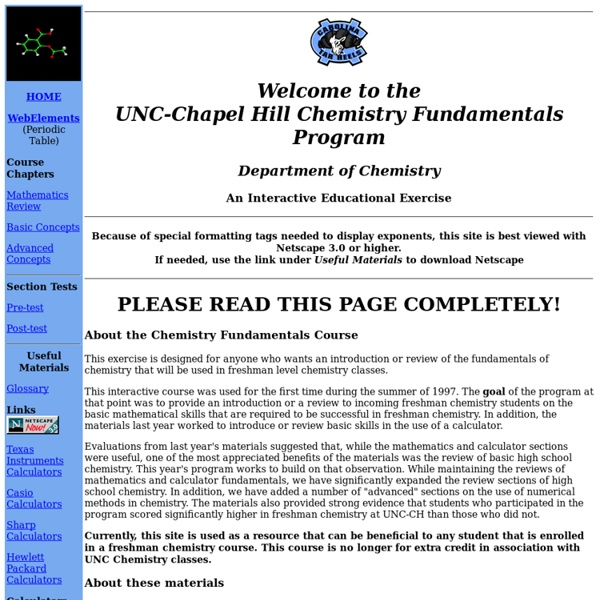UNC Chemistry Fundamentals

WebElements Periodic Table of the Elements
Related:
Related:



